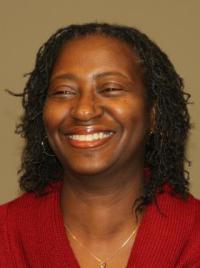Research Spotlight: Beverly J. Moss

Each month, the Communications Team reaches out to members of the Department of English faculty and asks them to elaborate on a current research or creative project they are working on or have recently completed. For this month, we asked Associate Professor and Director of Second-Year Writing Beverly J. Moss to discuss her work examining the many varied literacy practices present in African American communities.

In your own words, as the expert that you are, can you provide an overview of your project?
The project I’ve spent the most time working on recently, Phenomenal Women and Phenomenal Literacies: Everyday Literacy Practices in an African-American Women’s Club, centers on the literacy practices of Phenomenal Women Incorporated (PWInc), an African-American women’s club in Columbus, Ohio. Based on a lengthy ethnographic study, I document how their participation in PWInc encourages and even requires many of the members to engage in new literacy practices and to reimagine their literacy identities. PWInc is a social and civic organization started 20+ years ago by a group of black women who “wanted to do good work in the community and have a good time.” I examine how they use literacy to accomplish these goals. I pay particular attention to PWInc’s participation in and use of collective literacy practices; the role that their individual literacy identities play in club life; the way that the Club uses literacy to create Club and personal ethos and/or identity; and the how the Club uses literacy to effect change for African American women in their community.
Now, could you shorten this description into a single sentence that uses accessible language?
I look at how literacy functions in this local Black women’s club, as well as how participating in the Club influences its members’ litearacy identities.
In what ways is your research significant?
My research more broadly, and this research more specifically, documents the richness of literacy practices that exist in African American community contexts. Therefore, my research counters illiteracy narratives and deficit theories about African American communities.
Are you working with any colleagues or collaborators?
No, not on this particular project.
Is the project being funded or supported by any individuals or organizations that you would like us to acknowledge?
While this is not a funded project, I want to acknowledge the women of Phenomenal Women Incorporated (yes, they get their name from Maya Angelou’s poem “Phenomenal Woman”) who have continued to invite me to Club events long after I completed fieldwork.
Where do you see this project going in the future?
I hope this project results in a monograph that the club members are proud of.
What's next for you? What would you like to work on once this project is completed?
While I’ve been working on the Phenomenal Women project, I’ve also been working on a smaller project with two former doctoral students and a current doctoral student that emerged out of our work with the Literacy Narratives of Black Columbus course. The four of us are interested in how the instructors and students negotiate racial boundaries in this community-engaged course. Therefore, we received IRB approval to interview and survey students and to interview course instructors. We’re working on an article from that data set.
